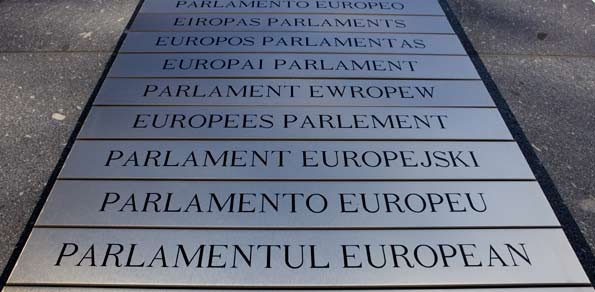The leaders of the 27 countries that make up the European Union are to meet in Brussels Wednesday to try and find a way to keep the debt crisis in Europe from spiralling out of control and promote jobs and growth. The original meeting was supposed to be informal, but with pressure building in the Eurozone, this meeting has taken centre stage and become all important.
The Organization for Economic Cooperation and Development warned that the 17 countries that use the euro risk falling into a “severe recession.” The report highlighted developments in the Eurozone as “the single biggest downside risk facing the global outlook” and included the following ominous sentence:
[quote]Adjustments in the euro area are now taking place in an environment of slow or negative growth and deleveraging, prompting risks of a vicious circle involving high and rising sovereign indebtedness, weak banking systems, excessive fiscal consolidation and lower growth.[/quote]
The political worries in Greece threaten to pull apart the Eurozone. Borrowing costs are up for the most indebted governments. There are an increasing number of reports of worried savers and investors pulling funds out of banks that are seen as weak. Meanwhile, unemployment is soaring as recession grips nearly half the Eurozone countries.
For the past few years, fiscal austerity was all was all anyone ever talked about in Europe. That had certain logic since governments were facing rising borrowing costs on bond markets, a sign that investors are nervous about the size of their ballooning deficits. Austerity was intended to address this nervousness by reducing a government’s borrowing needs. For the people of Europe, austerity meant layoffs and pay cuts for state workers, scaled-back spending on welfare and social programs, and higher taxes and fees to boost government revenue.
As a way out of this problem, economists and politicians have called for measures that would help a country’s economy grow. France’s new Socialist President, Francois Hollande, has led the charge, insisting during his campaign that he would not sign Europe’s fiscal pact until it includes measures to promote growth.
The agenda for this meeting now focuses on growth, Eurobonds, EU deposit insurance and the EU banking system. A much different agenda then just weeks ago.
However the question of how to produce growth for Europe is a sticky one. Germany, which led the push for austerity, insists that growth will be the product of tough reforms, like ones it undertook to liberalize its economy over a decade ago. Others say such reforms will take a while to bear fruit and more needs to be done right now—such as extending the deadline for deficit targets and waving through wage increases.
Leaders at Wednesday’s summit in Brussels—like the heads of the world’s leading economies at the G8 meeting at Camp David last weekend—are expected to tread a fine line between talking about ways to promote growth and sticking to commitments to balancing budgets.
The idea of project bonds are seen by many politicians and economists as a step towards so-called “Eurobonds”—jointly issued bonds that could be used to fund anything and could eventually replace an individual country’s debt. Eurobonds would protect weaker countries, like Spain and Italy, by insulating them from the high interest rates they now face when they raise money on bond markets. Those high interest rates are ground zero of the crisis: They forced Greece, Ireland and Portugal to seek bailouts.
EU President Herman Van Rompuy has encouraged participants on Wednesday to discuss “innovative, or even controversial, ideas.” He has suggested that nothing should be taboo and that long-term solutions should be looked at. That seems to point to a conversation about Eurobonds.
But Germany is still staunchly opposed to such as measure. On Tuesday, a senior German official stressed that despite the pressure from some other European countries, Merkel’s government has not eased its opposition.
The problem with many of the solutions on the table is that even if they are all implemented, they would likely take years to yield growth. And Europe needs faster answers.
To that end, many economists are pushing for a larger role for the European Central Bank—the only institution powerful enough to have an immediate impact on the crisis. If Europe’s central monetary authority was given the power to buy up country’s bonds, that government’s borrowing rates would be pushed down to more manageable levels.






Comments are closed.